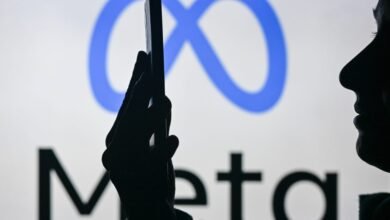Meta’s LlamaCon Takes Aim at OpenAI’s Dominance

▼ Summary
– Meta launched LlamaCon to introduce new AI tools aimed at challenging OpenAI, including a Meta AI chatbot app and a Llama API for developers.
– The Meta AI chatbot app features social integration, allowing users to share AI-generated conversations, leveraging user activity for personalized responses.
– The Llama API simplifies developer access to Meta’s AI models, requiring minimal code and promoting open-source alternatives over proprietary systems.
– Meta emphasizes open collaboration as a competitive advantage, partnering with other open-model developers like DeepSeek and Alibaba’s Qwen.
– Meta focuses on ecosystem growth and accessibility, aligning with regulatory trends like the EU AI Act, rather than pursuing standalone AI advancements.
Meta made waves this week with its inaugural LlamaCon event, showcasing new AI tools designed to challenge OpenAI’s market dominance. The tech giant unveiled two major offerings: a consumer-facing Meta AI chatbot app positioned as a ChatGPT alternative, and a streamlined Llama API for developers building cloud-based AI applications.
The Meta AI chatbot integrates social features, allowing users to share AI-generated conversations—a move that appears to preempt OpenAI’s rumored social networking ambitions. Unlike closed competitors, Meta’s approach leverages user activity across its apps to personalize responses, reinforcing its commitment to an open ecosystem.
For developers, the Llama API simplifies access to Meta’s AI models, requiring just one line of code to integrate cloud-based Llama functionality. This eliminates reliance on third-party providers while giving Meta tighter control over its developer tools. The strategy directly undercuts OpenAI’s API business, aligning with Meta’s broader goal of promoting open-source alternatives over proprietary systems.
Internal documents and public statements reveal Meta’s long-standing rivalry with OpenAI. Executives have openly prioritized outperforming GPT-4, while CEO Mark Zuckerberg has framed open collaboration as a competitive advantage. During LlamaCon, he emphasized partnerships with other open-model developers like DeepSeek and Alibaba’s Qwen, arguing that flexibility and shared innovation will ultimately surpass closed systems.
While some hoped for a breakthrough in AI reasoning capabilities, Meta’s focus remains on ecosystem growth rather than chasing standalone advancements. The company’s open-source stance may also serve a regulatory purpose, aligning with the EU AI Act’s exemptions for freely available AI systems—though debates continue over whether Llama models truly qualify.
Whether driven by competition, regulation, or ideology, Meta’s latest push reinforces its vision: an AI landscape where open collaboration outpaces walled gardens. For now, that means prioritizing accessibility over cutting-edge benchmarks—a trade-off that could reshape the industry’s balance of power.
(Source: TechCrunch)





